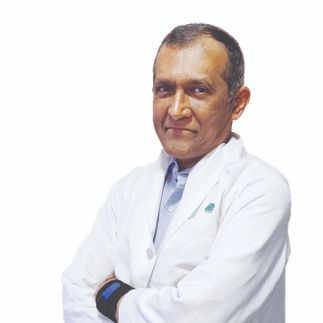Self-Care Strategies for Pancreatitis Management
Discover effective self-care strategies for managing pancreatitis, including dietary tips, lifestyle changes, and symptom monitoring. Learn how to support your recovery and prevent flare-ups with expert-recommended practices.


Pancreatitis is a condition that causes inflammation in the pancreas, a vital organ responsible for digestion and blood sugar regulation. If you or a loved one has been diagnosed with pancreatitis, managing the condition with proper self-care can help reduce symptoms, prevent complications, and improve overall well-being.
This article will guide you through simple yet effective self-care strategies to manage pancreatitis effectively.
Understanding Pancreatitis
The pancreas plays a crucial role in digestion by producing enzymes that break down food and hormones like insulin that regulate blood sugar. When the pancreas becomes inflamed, it can lead to:
- Acute pancreatitis – A sudden inflammation that may last for a few days.
- Chronic pancreatitis – Long-term inflammation that can cause permanent damage.
Consult top Gastroenterologist
Common Symptoms of Pancreatitis
Here’s a detailed overview of the Common Symptoms of Pancreatitis, helping you recognize early warning signs and seek timely medical care:
- Severe abdominal pain (often radiating to the back)
- Nausea and vomiting
- Fever and rapid pulse
- Swollen or tender abdomen
- Unexplained weight loss (in chronic cases)
- Oily, foul-smelling stools (due to poor digestion)
Self-Care Strategies for Pancreatitis Management
Managing pancreatitis involves lifestyle changes, dietary adjustments, and medical support. Here are some key self-care strategies:
1. Follow a Pancreatitis-Friendly Diet
- Diet plays a crucial role in managing pancreatitis. Since the pancreas is involved in digestion, eating the right foods can reduce stress on it.
Foods to Eat:
- Low-fat foods – Opt for lean proteins like chicken, fish, tofu, and legumes.
- Fruits and vegetables – Easily digestible options like bananas, applesauce, and steamed veggies.
- Whole grains – Oatmeal, brown rice, and whole wheat bread provide fiber without overloading digestion.
- Small, frequent meals – Eating smaller portions 5-6 times a day prevents overworking the pancreas.
Foods to Avoid:
- Fried and fatty foods – These can trigger inflammation.
- Alcohol – A major cause of pancreatitis; complete avoidance is best.
- Sugary and processed foods – Can worsen inflammation and blood sugar levels.
- Spicy foods – May irritate the digestive system.
2. Stay Hydrated
- Dehydration can worsen pancreatitis symptoms. Drink plenty of water, herbal teas, and clear broths. Avoid sugary drinks and caffeine, which can dehydrate you further.
3. Quit Smoking and Avoid Alcohol
- It is advisable to quit smoking and avoid alcohol when there is pancreatitis.
- Alcohol is a leading cause of pancreatitis. Even small amounts can trigger flare-ups.
- Smoking worsens inflammation and increases complications. Seek support to quit if needed.
4. Manage Pain Naturally
- Pancreatitis pain can be severe. While medications help, natural methods can also provide relief:
- Heat therapy – A warm compress on the abdomen may ease discomfort.
- Gentle movements – Light walking or yoga can improve digestion and reduce bloating.
- Relaxation techniques – Stress can worsen symptoms, so deep breathing and meditation may help.
5. Monitor Blood Sugar Levels
- Chronic pancreatitis can affect insulin production, leading to diabetes. If you notice frequent thirst, fatigue, or blurred vision, check your blood sugar regularly and consult a doctor.
6. Take Prescribed Medications
Your doctor may prescribe:
- Pain relievers (avoid self-medicating with NSAIDs like ibuprofen, as they can irritate the stomach).
- Enzyme supplements – Help digest food properly if your pancreas isn’t producing enough enzymes.
- Vitamins – Pancreatitis can lead to deficiencies in vitamins A, D, E, and K; supplements may be needed.
7. Exercise Moderately
- Gentle exercises like walking, swimming, or yoga can improve digestion and overall health. Avoid intense workouts that may strain your body.
8. Get Regular Check-ups
- Regular follow-ups with your doctor ensure your treatment plan is working. Blood tests, imaging scans, and nutritional assessments help track progress.
When to Seek Medical Help
While self-care helps, seek immediate medical attention if you experience:
- Severe, unrelenting abdominal pain
- High fever or chills
- Persistent vomiting
- Yellowing of skin or eyes (jaundice)
If you need personalized guidance, consider consulting a specialist. You can easily book a consultation or schedule tests through Apollo 24|7 for expert care from the comfort of your home.
Conclusion
Living with pancreatitis requires mindful self-care, but with the right strategies, you can manage symptoms and improve your quality of life. By following a healthy diet, avoiding alcohol and smoking, staying hydrated, and keeping up with medical advice, you can support your pancreas and overall well-being.
Consult top Gastroenterologist
Consult top Gastroenterologist

Dr. Sunil Kaul
General Surgeon
30 Years • MBBS, MS, FICS, FIMSA, FMAS
Delhi
Apollo Hospitals Indraprastha, Delhi
(25+ Patients)

Dr. Sumanth Simha Vankineni
Gastroenterology/gi Medicine Specialist
4 Years • MD, DM (Medical Gastroenterology )
Chinagadila
Apollo Hospitals Health City Unit, Chinagadila
(25+ Patients)

Dr. Amit Pandita
Gastroenterology/gi Medicine Specialist
10 Years • MBBS. MD (INTERNAL MEDICINE) DrNB (GASTROENTEROLOGY AND HEPATOLOGY)
Delhi
Apollo Hospitals Indraprastha, Delhi

Dr. Soham Doshi
Gastroenterology/gi Medicine Specialist
8 Years • MD medicine DNB Gastroenterology fellowship in Liver Transplant
Nashik
Apollo Hospitals Nashik, Nashik

Dr. Vipul Worah
Gastroenterology/gi Medicine Specialist
29 Years • MBBS, MD (Med.),DM (Gastro)
Ahmedabad
Apollo Hospitals Gandhinagar, Ahmedabad
Consult top Gastroenterologist

Dr. Sunil Kaul
General Surgeon
30 Years • MBBS, MS, FICS, FIMSA, FMAS
Delhi
Apollo Hospitals Indraprastha, Delhi
(25+ Patients)

Dr. Sumanth Simha Vankineni
Gastroenterology/gi Medicine Specialist
4 Years • MD, DM (Medical Gastroenterology )
Chinagadila
Apollo Hospitals Health City Unit, Chinagadila
(25+ Patients)

Dr. Amit Pandita
Gastroenterology/gi Medicine Specialist
10 Years • MBBS. MD (INTERNAL MEDICINE) DrNB (GASTROENTEROLOGY AND HEPATOLOGY)
Delhi
Apollo Hospitals Indraprastha, Delhi

Dr. Soham Doshi
Gastroenterology/gi Medicine Specialist
8 Years • MD medicine DNB Gastroenterology fellowship in Liver Transplant
Nashik
Apollo Hospitals Nashik, Nashik

Dr. Vipul Worah
Gastroenterology/gi Medicine Specialist
29 Years • MBBS, MD (Med.),DM (Gastro)
Ahmedabad
Apollo Hospitals Gandhinagar, Ahmedabad